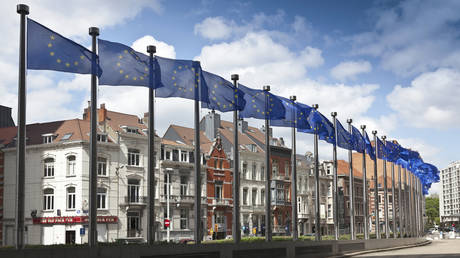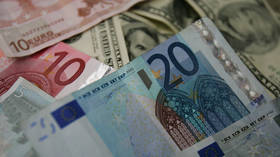

© Getty Images/Buena Vista Images
Malta, Luxembourg, and Hungary have reportedly warned against directing the proceeds generated by the frozen assets to Ukraine’s military © Getty Images/Buena Vista Images
An EU plan to use the profits generated by Russia’s frozen central bank assets to buy weapons for Ukraine has faced resistance from Malta, Luxembourg, and Hungary, Politico reported on Thursday, citing an EU official.
European Commission President Ursula von der Leyen last month suggested using the interest earned from the assets to acquire weapons for Ukraine rather than using the funds for reconstruction, as had been initially planned.
According to the outlet, Malta, Luxembourg and Hungary “expressed reservations” about the plan during a meeting of the EU’s 27 ambassadors on Wednesday. The report indicated that von der Leyen’s idea of using Russian money to purchase arms for Kiev has “complicated talks” ahead of the EU leaders’ summit in Brussels next week.
The West has frozen roughly $300 billion in holdings belonging to the Russian central bank since the start of the Ukraine conflict two years ago. Brussels-based clearinghouse Euroclear holds around €191 billion ($205 billion) of the funds and has accrued nearly €4.4 billion in interest over the past year.
The EU is aiming to give Kiev between €2 and €3 billion in revenue generated by the frozen assets this year, the Financial Times reported earlier this week. A first tranche of the money could be disbursed as early as July if Brussels can secure the approval of all bloc members, the outlet said, citing EU officials.
Some member states are cautious about the controversial proposal, saying it needs a more thorough analysis, Bloomberg said in a separate report on Tuesday.


Hungary has reportedly insisted that the proceeds from the Russian assets should be allocated to Ukraine’s reconstruction rather than be used for funding its military, the outlet said, citing people familiar with the discussions.
While Kiev’s Western backers generally agree that the frozen assets should be used to aid Ukraine, they are at odds about whether an outright seizure would be legal. While the US and UK support the direct expropriation of the funds, some EU member states, France and Germany in particular, warn the move would erode trust in the European financial system.
It’s also argued that such a drastic move would set a bad precedent that could push other countries to avoid holding their reserves in Western currencies out of fear that they could someday also becomes targets of sanctions.
Moscow has warned that it would respond in kind if the West went through with its threats to confiscate the assets. Russia has repeatedly said that any actions taken against its assets would amount to “theft,” stressing that seizing the funds or any similar move would violate international law and undermine Western currencies, the global financial system, and the world economy.
For more stories on economy & finance visit RT’s business section
Azərbaycan24 sosial şəbəkələrdə






